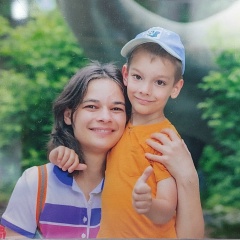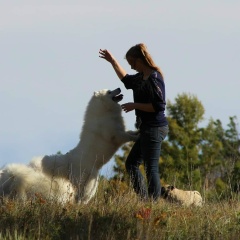Недавно узнал, что термин "белые ночи" используется в том числе в некоторых южных странах вроде Италии и Испании, где ночи круглый год довольно темные. Обозначает он, как положено, летний период, когда день максимально длинный, а ночь — короткая (насколько это возможно на юге).
Смешно, конечно: настоящими белыми ночами, как в Петербурге, там и не пахнет. Да и мосты не разводятся.
Впрочем, с другой стороны, мурманчане, архангельчане и прочие северные жители смеются над белыми ночами в Петербурге, мол, недоразумение, то ли дело у них — солнце вообще почти не заходит. Но это, конечно, тоже глупости — давно понятно, что белые ночи интересны как идеальный антураж для архитектуры, разводных мостов, похода по барам, а без всего этого это уже не белые ночи, а полярный день.
P.S. А еще я слышал от уроженцев Дальнего Востока, что рыба корюшка — это их локальная тема, именно дальневосточная корюшка самая вкусная, правильная и экологичная, а в Питере — мелкая, костлявая, и вообще мы тут даже рыбу чистить не умеем. Эту провокацию я бы, конечно, тоже не смог оставить без ответа, но за меня уже Горчев все объяснил: http://gorchev.lib.ru/txt/by1/koryushka.shtml
Смешно, конечно: настоящими белыми ночами, как в Петербурге, там и не пахнет. Да и мосты не разводятся.
Впрочем, с другой стороны, мурманчане, архангельчане и прочие северные жители смеются над белыми ночами в Петербурге, мол, недоразумение, то ли дело у них — солнце вообще почти не заходит. Но это, конечно, тоже глупости — давно понятно, что белые ночи интересны как идеальный антураж для архитектуры, разводных мостов, похода по барам, а без всего этого это уже не белые ночи, а полярный день.
P.S. А еще я слышал от уроженцев Дальнего Востока, что рыба корюшка — это их локальная тема, именно дальневосточная корюшка самая вкусная, правильная и экологичная, а в Питере — мелкая, костлявая, и вообще мы тут даже рыбу чистить не умеем. Эту провокацию я бы, конечно, тоже не смог оставить без ответа, но за меня уже Горчев все объяснил: http://gorchev.lib.ru/txt/by1/koryushka.shtml
I recently learned that the term "white nights" is used in some southern countries such as Italy and Spain, where the nights are quite dark all year round. It designates, as expected, the summer period when the day is as long as possible and the night is short (as much as possible in the south).
It’s ridiculous, of course: it doesn’t smell like real white nights, like in St. Petersburg. Yes, and bridges do not part.
However, on the other hand, Murmansk residents, Arkhangelsk residents and other northern residents laugh at the white nights in St. Petersburg, they say, a misunderstanding, whether it’s their business - the sun hardly sets at all. But this, of course, is also nonsense - it has long been understood that white nights are interesting as an ideal setting for architecture, drawbridges, trekking through bars, and without all this it is no longer white nights, but a polar day.
P.S. And I also heard from the natives of the Far East that smelt fish is their local topic, it is the Far Eastern smelt that is the most delicious, regular and environmentally friendly, and in St. Petersburg it is small, bony, and in general we don’t even know how to clean fish here. Of course, I would also be unable to leave this provocation unanswered, but Gorchev already explained everything for me: http://gorchev.lib.ru/txt/by1/koryushka.shtml
It’s ridiculous, of course: it doesn’t smell like real white nights, like in St. Petersburg. Yes, and bridges do not part.
However, on the other hand, Murmansk residents, Arkhangelsk residents and other northern residents laugh at the white nights in St. Petersburg, they say, a misunderstanding, whether it’s their business - the sun hardly sets at all. But this, of course, is also nonsense - it has long been understood that white nights are interesting as an ideal setting for architecture, drawbridges, trekking through bars, and without all this it is no longer white nights, but a polar day.
P.S. And I also heard from the natives of the Far East that smelt fish is their local topic, it is the Far Eastern smelt that is the most delicious, regular and environmentally friendly, and in St. Petersburg it is small, bony, and in general we don’t even know how to clean fish here. Of course, I would also be unable to leave this provocation unanswered, but Gorchev already explained everything for me: http://gorchev.lib.ru/txt/by1/koryushka.shtml
У записи 5 лайков,
0 репостов.
0 репостов.
Эту запись оставил(а) на своей стене Артемий Иванюшин
























